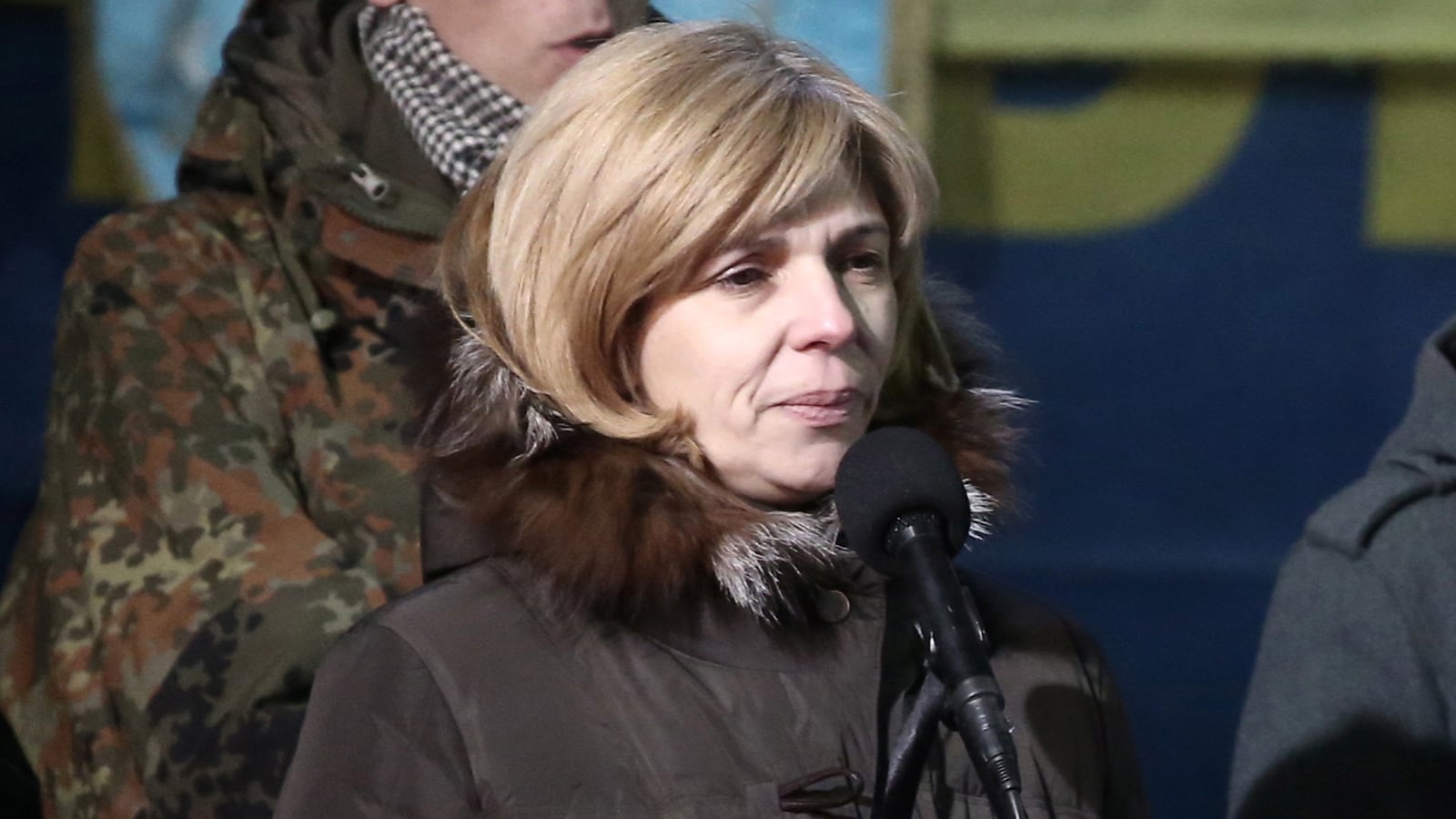On Wednesday night Olga Bogomolets faced one of her life’s most important decisions. Still cold after standing on stage before thousands of Ukrainians gathered on the EuroMaidan, she sat at a corner table of a McDonalds shivering in her parka. With her big, deep eyes half closed, she remembered the wounds she tried to cure last week, working on her knees on the floor of an improvised hospital at the House of Officers, treating the worst wounds of the bleeding protesters with bullet and shrapnel injuries in their necks, heads and abdomens. She knew she needed to make the right decision—it was her duty to the “heroes of the Maidan,” those whose lives she did not manage to save.

Earlier that night, the new Ukraine’s leaders had nominated Bogomolets to be the country’s vice-prime minister for humanitarian affairs, making the announcement on the Maidan stage. Thousands on the square applauded in support of Bogomolets, the savior of the conflict’s victims, their national Mother Teresa—the “White Angel,” as some injured defenders of the Maidan referred to her. “I felt as if they threw me under the tanks: my heart, sensitive to hypocrisy and farce, tells me it would be wrong to belong to the new government of politicians whom I hardly know,” Bogomolets confessed in an interview to The Daily Beast.
A priest she spoke with that day had encouraged her not to be scared of giving herself to politics for the sake of people giving their lives to the revolution. But Bogomolets still felt torn about the newly appointed government. She never wanted a political career for herself. Before the revolution, she was famous in Ukraine for her art galleries, her books, her beautiful folk singing and the clinic she had founded over a decade ago, Dr. Bogomolets' Institute of Dermatology and Cosmetology, popular among the country’s elite. Besides, she had her own vision of building the new government through a careful vetting of each of its candidates before the Maidan’s people congress. “Our main goal is to unite East and West of Ukraine and Crimea around the idea of preserving our nation, of Ukrainian people’s health,” Bogomolets said.
The bureaucratic system under President Yanukovych restricted most Western humanitarian programs for Ukraine, Bogomolets said. The Maidan’s coordinating center for the injured had to build its own independent bridges by reaching out to embassiesin Kiev. “We are thankful to European diplomats helping us to arrange treatment for the injured abroad, to Russian crises doctors, who volunteered to work in Kiev, and to U.S. foundations for their most flexible aid, making it comfortable for the injured ones,” said Bogomolets’ colleague responsible for international coordination, Olena Hantsyak-Kaskiv, in a recent interview.
Last November, Bogomolets’ heart called her to organize volunteer medical aid for the very first protesters injured by Berkut police. She said that at the time, state hospitals refused to admit injured protesters under instructions given by the government. Using her contacts, she tried to stop hospitals from letting police arrest the injured activists. Someof the injured were being detained right after they awoke from anesthesia. Bogomolets’ office became a storage facility—big plastic bags labeled as “syringes,” “bandages,” “pain killers” and other first aid medicine contributed from embassies piled up right under social art and modern paintings on the walls.
Just on the first day the fighting began on Feb. 18, the center of Kiev was flooded with 1,500 wounded people, Bogomolets said. She worked in the House of Officers together with other doctors, struggling to handle gravely wounded. That day, two patients died under her care—men shot in the neck by snipers. On the most critical moment, when the shooting reached the doorstep of the House of Officers, Bogomolets made a crucial decision to evacuate the hospital to her office, before the Berkut took over their medical supplies. Male surgeons working with her said she was their "courageous leader" for organizing the corridor for the evacuation.
Since then, Bogomolets and her colleagues have been busy lining up humanitarian help for the country. “We have already organized treatment for over 60 patients in Europe, in a few days we are expecting an airplane from America,” Bogomolets said. The country needed international involvement in reforming Ukraine’s ministries, she believes: “I suggested a full international audit of the health ministry,” she said. Her intuition told her that her job was to continue saving lives rather than join politics.
The decision she made that night was to turn down the offered position in the new government, her press office confirmed on Thursday morning. The Maidan defenders understood and hoped she would one day make a different decision. “Once again oligarchs crawl into our government, Bogomolets feels that it is wrong to be with them,” said Nikolai Strezhak, the leader of a group of famers defending the Maidan, during a protest outside the parliament on Thursday. “She is with us, with people and one day we’ll carry her into the parliament in our arms.”






